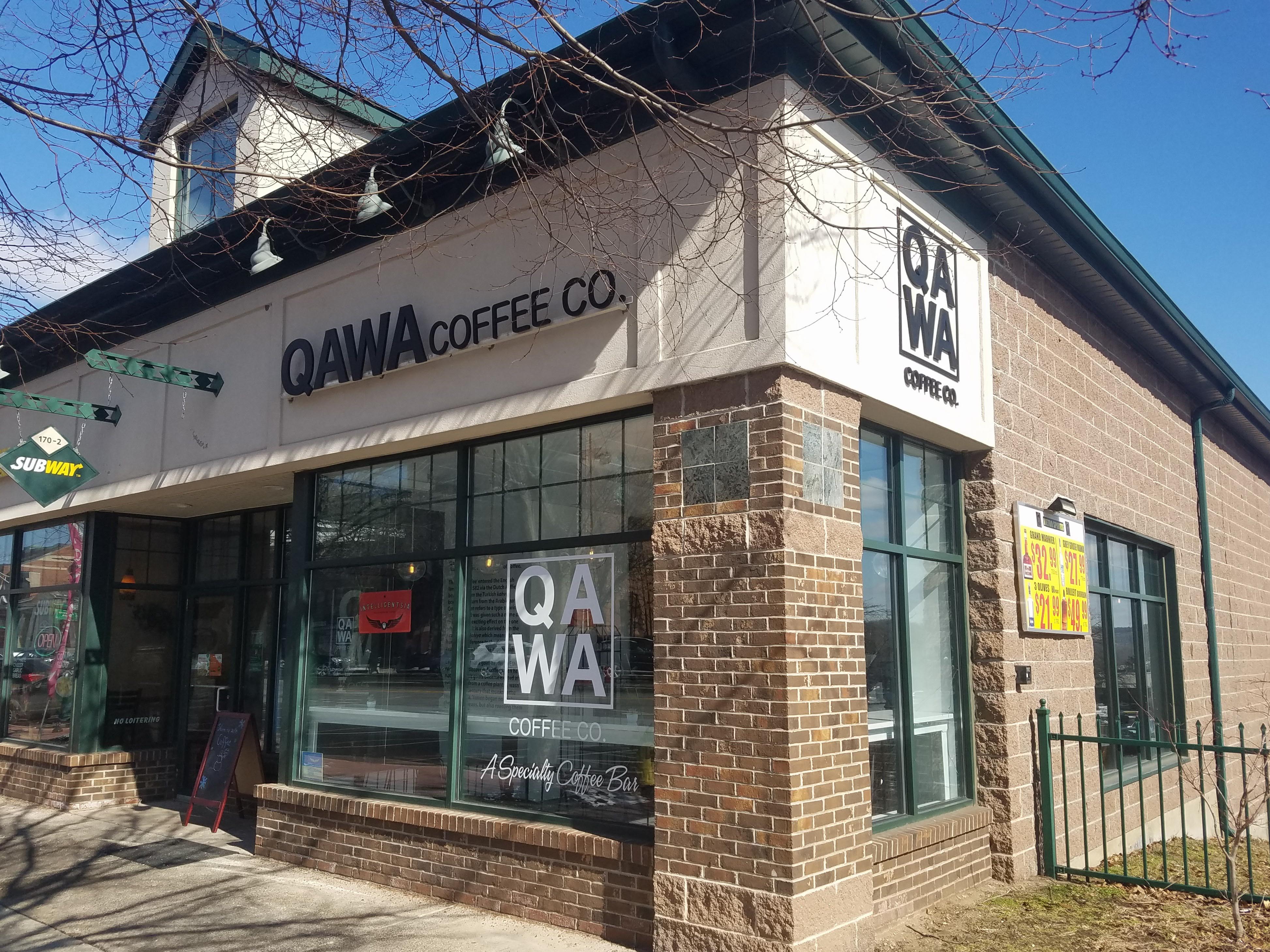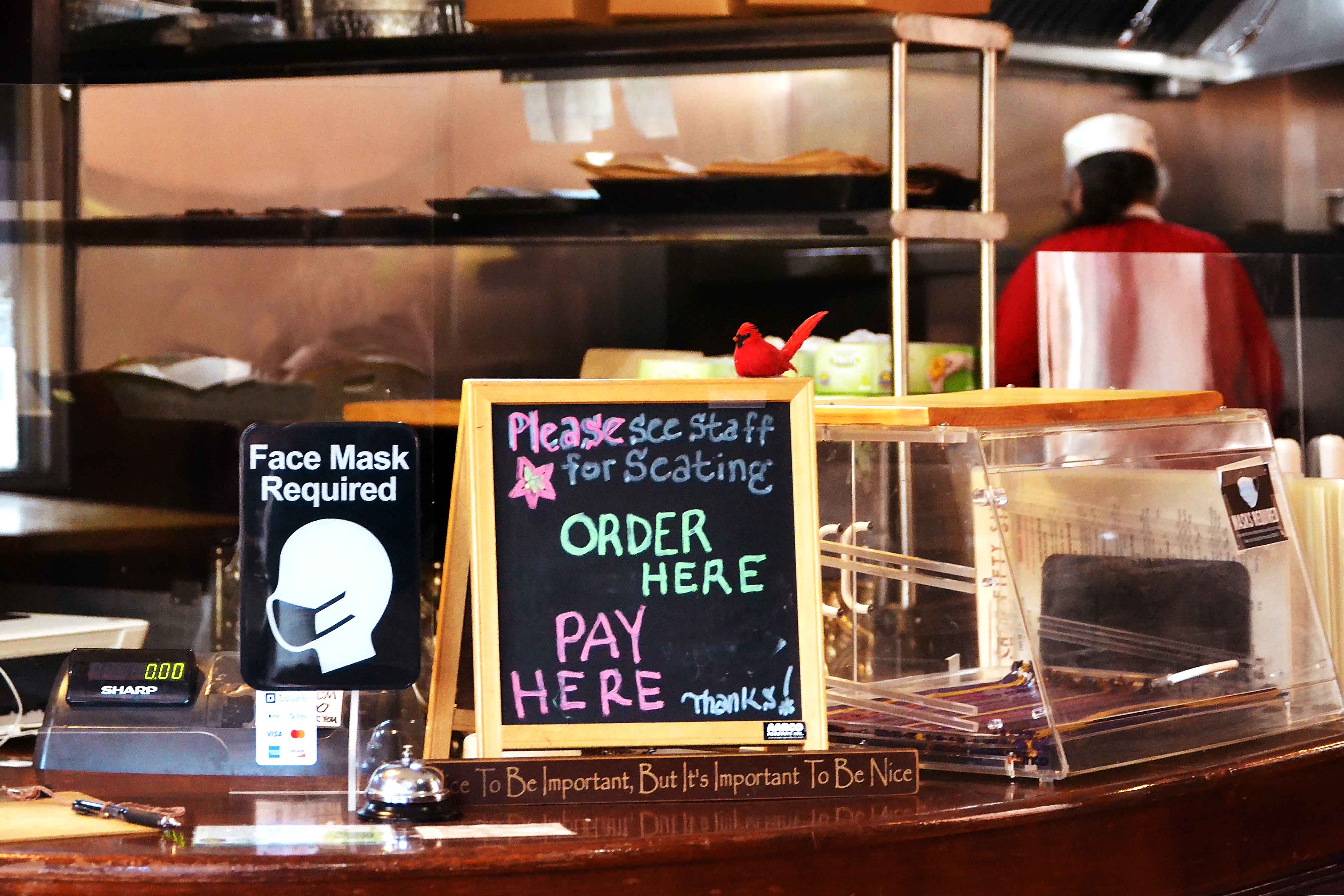
Small businesses in Middletown that rely heavily on students for economic revenue have been hit hard by the COVID-19 pandemic and the extra months students spent away from campus. As most students’ quarantine periods come to an end, they can now safely support the city’s small businesses they’ve become partial to over the years.
“The Wesleyan student body and the campus as well have a really strong impact on the business community, and an economic impact especially on the downtown,” Chief Staff Liaison to Middletown and Vice President of the Middlesex Chamber of Commerce Jeff Pugliese said. “We’re thrilled to have the students back in town and we want to make sure they follow all the protocols that are being recommended by the University.”
These sentiments were echoed by business owners, eager to see customers return now that the student quarantine period is over. Many businesses also expressed gratitude to their patrons for following Connecticut’s COVID-19 guidelines.
“Basically everyone in Middletown has been really nice in terms of adhering to the new protocols,” Qawa Coffee co-owner Abdul Alhadheri said. “We’re seeing a lot of students now that they’re all back, which has been exciting.”
Though Middletown businesses have felt the economic consequences of the pandemic, many have managed to stay afloat, with some even expanding their enterprises.
“For every business that has had to struggle, there’s one that’s found an opportunity,” Business Advisor for the Connecticut Small Business Development Center Jim Jackson said. “We’ve seen businesses that have been able to find more demand, any business that serves people at home, often sees that they have an opportunity to expand their products.”
Pedal Power is one Middletown business that has found this opportunity. After being deemed an essential service, they worked out of a nearby park from mid-April through early June before switching to a “one-on-one” store model.
“We’re not 100% open, but we’ve been doing one family per employee and it’s been working out pretty good for us because there’s been a mini bike boom,” co-owner Gary Nicol said.
Despite Pedal Power’s success, other businesses have been forced to change their approach to continue generating revenue.
“We’ve adapted to an ‘at home’ model, a lot of online lessons, it’s lonely in the store, but we’re getting by,” owner of the Middlesex Music Academy Matt Lefebvre said. “Obviously, everyone is hurting at the moment, but Middletown is a great town and I know we’ll get by.”

Restaurants like Mondo’s Pizza have coped by encouraging online ordering and curb-side pickup to minimize in-person contact.
“Restaurants like mine, which are pizza places, that can be takeout-centric have had a much easier time, not that it’s been easy, but it’s been easier than a fine dining restaurant,” Mondo’s Pizza owner Keith Vibert said.
The survival plans of Middletown’s small businesses have emphasized adaptability as they move operations online, adjust in-person interactions, and cater their services towards aligning with COVID-19 safety guidelines.
“I think the small business community is going to have to adapt,” Pugliese said. “We’re going to learn a lot of lessons from this and the term we’re really focusing on right now is resilience. We need to create economic resilience.”
Some businesses, however, have not been adapted to the state’s COVID-19 regulations as quickly as others.
“We’ve had…pretty good cooperation from employees, business owners, patrons in wearing masks and practicing all the guidelines,” Middletown Mayor Ben Florsheim ’14 said. “We’ve had some problematic behaviors from some of our businesses…. A restaurant downtown that was turning into sort of a club at night…and there was a video taken by someone that was there of dozens, if not hundreds of people crowded together without masks, going up to the bar…. The Chamber [of Commerce] tried to work with them and since then they’ve been cooperative.”
Pugliese discussed the importance of using the resources available to small businesses through the Chamber.
“Our role as a Chamber of Commerce…is to be an advocate for [small businesses] so I think it became incumbent on us to play a really strong leadership role,” Pugliese said. “We started by making sure our members knew…how to apply to their bank, which banks are offering things such as the paycheck protection program, loans….We were able to be a resource for our businesses as they began to transition from in-person to more of a virtual format.”
Grants and loans from the City of Middletown have also served as an important resource for businesses seeking financial support. The Mayor’s Office, along with the Economic Development Commission and the Chamber of Commerce created a small business loan and grant program that gave loans of up to $10,000 and grants of up to $5,000 per business.
Florsheim expected demand to be higher, but right around the time the applications for the loans and grants went out, businesses received their Paycheck Protection funds from the federal government. However, the city has seen an uptick in loan and grant application interest from small businesses since September as the pandemic continues to impact revenue.
The consensus of business owners and the Chamber of Commerce alike is that if students can safely support their favorite Middletown establishments while adhering to masking and distancing guidelines, they should.
“For the most part, the small businesses are open, and I think as long as we continue to follow the guidelines put out by the state… there’s no reason that the students cannot go out and support the small businesses here in the community,” Pugliese said.
Katarina Grealish can be reached at kgrealish@wesleyan.edu.



Leave a Reply